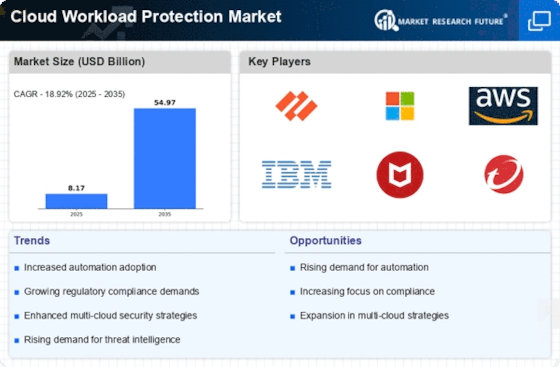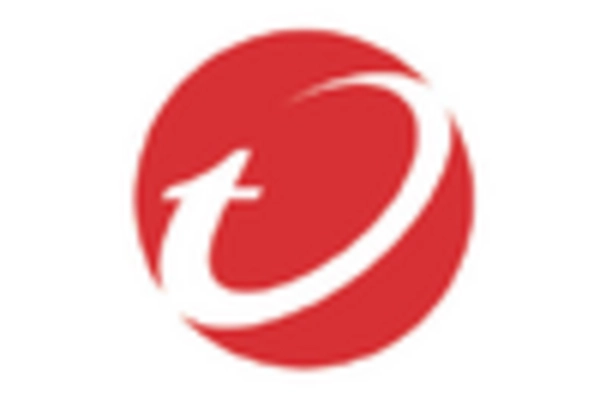Market Trends
Key Emerging Trends in the Cloud Workload Protection Market
Cloud workload protection market has experienced substantial growth and transformation, fueled by the rapid adoption of cloud computing and the increasing sophistication of cyber threats targeting cloud workloads. Cloud workload protection refers to the set of security tools and strategies designed to safeguard cloud-based workloads and applications from various threats, including malware, data breaches, and insider attacks. One significant trend in this market is the rising adoption of cloud-native security solutions specifically tailored for cloud environments. These solutions leverage native cloud services and APIs to provide seamless integration, automation, and scalability, allowing organizations to effectively protect their cloud workloads without compromising performance or agility.
Another notable trend is the convergence of workload protection with other security technologies such as cloud access security brokers (CASBs), identity and access management (IAM), and security information and event management (SIEM) systems. As organizations increasingly embrace multi-cloud and hybrid cloud architectures, there is a growing need for integrated security solutions that can provide comprehensive visibility and control across all cloud environments. Unified security platforms that combine workload protection with other security capabilities enable organizations to centralize security management, streamline compliance, and enhance threat detection and response capabilities across their entire cloud footprint.
Furthermore, there is a growing emphasis on runtime protection and behavior-based detection within the cloud workload protection market. Traditional signature-based approaches to malware detection are no longer sufficient to combat the evolving threat landscape, which includes polymorphic malware, zero-day exploits, and fileless attacks. Runtime protection solutions use advanced techniques such as behavioral analysis, machine learning, and threat intelligence to monitor the behavior of cloud workloads in real-time and detect anomalous activities indicative of potential security threats. By focusing on runtime protection, organizations can detect and respond to threats more effectively, minimizing the risk of data breaches and business disruption.
Additionally, the increasing adoption of serverless computing and containerization technologies is driving demand for specialized workload protection solutions tailored for these environments. Serverless computing platforms such as AWS Lambda and Azure Functions abstract the underlying infrastructure, making traditional security measures such as host-based antivirus and firewall solutions ineffective. Similarly, containers introduce unique security challenges due to their ephemeral nature and shared kernel architecture. Workload protection solutions designed specifically for serverless and containerized workloads provide visibility, control, and security policy enforcement capabilities tailored to these environments, enabling organizations to securely deploy and manage their cloud-native applications.
Moreover, regulatory compliance requirements and data privacy concerns are shaping the cloud workload protection market, driving the need for solutions that offer built-in compliance controls and data protection capabilities. With the introduction of regulations such as GDPR, CCPA, and HIPAA, organizations are under increasing pressure to ensure the security and privacy of sensitive data stored and processed in the cloud. Cloud workload protection solutions that offer encryption, access controls, data loss prevention (DLP), and compliance reporting features enable organizations to achieve regulatory compliance and maintain the trust of their customers and stakeholders.
Lastly, the growing complexity of cloud environments and the shortage of cybersecurity talent are driving organizations towards managed security services and cloud-native security automation solutions. Managed security service providers (MSSPs) offer expertise, resources, and 24/7 monitoring capabilities to help organizations enhance their security posture and alleviate the burden of security management. Cloud-native security automation solutions leverage AI, orchestration, and automation technologies to automate security tasks such as threat detection, incident response, and vulnerability management, enabling organizations to improve efficiency, reduce human error, and scale security operations to meet the demands of modern cloud environments.


















Leave a Comment